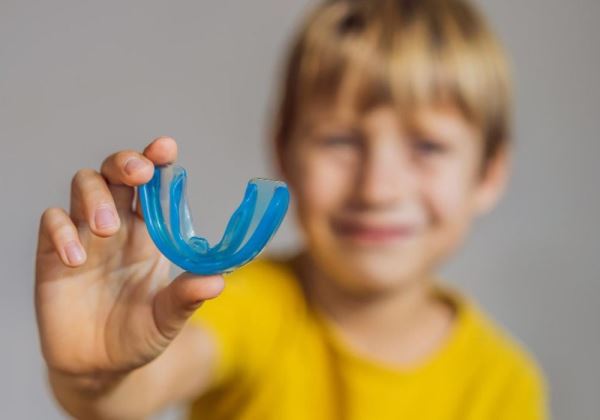Our Blog
1 in 3 dental injuries in children occur during sports practice
With the arrival of summer and holidays, the practice of outdoor sports increases and, therefore, the number of dental traumas also increases. Although physical exercise has great health benefits, certain precautions must be taken to avoid mishaps. Specifically, sports activity can affect oral health for various reasons:
- Dehydration: promotes dry mouth (xerostomia), negatively influencing health.
- Stress: It is a risk factor for the appearance of periodontal disease, dental erosion, abrasion and bruxism (grinding).
- Sugar and acid intake: promotes tooth demineralization and, therefore, the appearance of cavities, dental erosion and periodontal disease.
- Dental trauma: This can frequently occur when practicing contact and combat sports without adequate protection.
- Chlorine: In water sports, the low pH of pool water can cause dental erosion.
For this reason, the General Council of Dentists recommends a healthy diet, limiting foods and drinks with a high sugar content. For example, when we eat between meals, a good option is fruits, vegetables, cheese and nuts, instead of other foods such as biscuits and energy bars, which can cause cavities.
To stay hydrated, it is healthiest to drink water regularly, but in the case of drinking energy drinks, it is advisable to counteract their acidity by rinsing your mouth with water immediately afterwards and not brushing your teeth until half an hour after consuming them. In addition, it is healthier to consume these drinks with a reusable straw to avoid contact of the liquid with your teeth.
People who spend a lot of time in pools with low water pH should rinse their mouth with tap water after swimming and brush their teeth twice a day with fluoride toothpaste, but never immediately after swimming.
When to use mouth guards?
Many athletes think that only those who play sports professionally should use mouthguards, however, the General Council of Dentists advocates using them whenever you play contact sports. Some amateurs have less control over their movements, less knowledge about injuries and the risk of suffering trauma is greater than in elite athletes.
Dr. Oscar Castro Reino, president of the Professional Association of Dentists, reminds us that standard mouthguards sold directly to the public are not reliable, as they do not fit well and generally offer little protection. “You should always opt for mouthguards made to measure by the dentist, as they are the only ones that satisfactorily meet the criteria of protection, stability, retention and comfort, as well as preventing alterations in the temporomandibular joint.
Currently, these protectors are used by athletes who practice boxing, taekwondo, ice hockey and rugby. But they would also be suitable for all martial arts, basketball, volleyball, handball, cycling, football, gymnastics, wrestling, field hockey, squash, equestrian sports, water polo and, in general, wherever there is a risk of receiving a blow, regardless of the age of the athlete.
“The mouthguard considerably reduces the risk of trauma (fractures, displacements, avulsions) to the front teeth, particularly those of the upper jaw (maxilla). It isolates the teeth from the mucous membranes, lips, cheeks and tongue, preventing soft tissue injuries and tongue bites. It also prevents the lower jaw teeth from impacting against the upper jaw teeth, and reduces the risk of mandibular fracture, concussion and cervical injuries,” explains Dr. Castro.
What to do in case of dental trauma?
Practicing contact sports always involves the possibility of facial or dental trauma. Statistics show that athletes are at greater risk of injury, fractures or even tooth loss. In fact, it has been shown that 1 in 3 dental injuries in children occur during sports activities. If any of these occur, you need to react quickly:
- Tooth fracture: try to find the broken tooth fragment and keep it in water or saline solution. See a dentist immediately, who may be able to reattach it in some cases.
- Displaced or loose tooth: do not touch the tooth, as the impact and displacement may have fractured the root and/or socket. Avoid rinsing your mouth and consult a dentist immediately.
- Knocked-out tooth or avulsion: Recover the knocked-out tooth by holding it by the crown, not by the root. Preserve the tooth in milk, saliva or saline solution. If reimplantation is carried out 30 minutes after the accident, the success rate can be around 70%. After that point, the chances of success decrease considerably.

